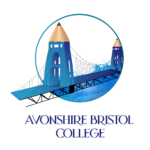Lower Elementary Montessori diploma
The Lower Elementary Montessori diploma is a certification program designed for individuals who wish to become certified Montessori teachers for children aged 6 to 9 years old. The program provides training in the Montessori approach to education, which emphasizes the development of the whole child through hands-on, experiential learning.
The Lower Elementary Montessori diploma program typically includes coursework in child development, Montessori philosophy and methodology, curriculum planning and implementation, classroom management, observation and assessment, and communication with parents and colleagues.
In addition to coursework, the program often includes supervised fieldwork in a Montessori classroom, which provides students with the opportunity to apply their learning in a real-world setting. Students may also be required to complete a research project and a comprehensive examination in order to earn their diploma.
Upon completion of the Lower Elementary Montessori diploma program, graduates are prepared to work as Montessori teachers in public or private schools, or to open their own Montessori schools. They are equipped with the skills and knowledge necessary to create nurturing, engaging learning environments that promote the intellectual, social, emotional, and physical development of young children.
Modules
The specific modules included in a Lower Elementary Montessori diploma program may vary depending on the institution offering the program, but generally, the following modules are included:
- Child Development: This module covers the physical, cognitive, social, and emotional development of children aged 6 to 9 years old. Students learn about developmental milestones, individual differences, and the role of the environment in supporting children’s growth and development.
- Montessori Philosophy and Methodology: This module provides an overview of the Montessori approach to education, including its history, key concepts, and principles. Students learn about the prepared environment, the role of the teacher, and the use of Montessori materials to support children’s learning.
- Curriculum Planning and Implementation: This module covers the design and implementation of a Montessori curriculum for children aged 6 to 9. Students learn about the different subject areas, such as language, math, science, and cultural studies, and how to create integrated, interdisciplinary lessons that meet the needs of individual children.
- Different Subject areas ( Language- Mathematics- Geometry- History- Biology- Geography- Art- Music
- Classroom Management: This module covers strategies for creating a positive, nurturing classroom environment that supports children’s learning and development. Students learn about effective communication, conflict resolution, behavior management, and creating a culture of respect and collaboration.
In addition to these core modules, some programs may include additional modules on topics such as special education, diversity and inclusion, or leadership and administration.
Length of the diploma: 18 months.
Delivery: online.
Language: English translated into Arabic.
